It might have surprised you to find a website about science and faith and how they interact with each other. Or maybe it didn’t. Perhaps you’ve thought that you have to choose between a faith in God and becoming a great scientist. Or perhaps you’ve heard of lots of scientists who have a faith.
In reality, lots of scientists and philosophers throughout history have had a deep, personal faith – and that’s still true today. Many of these people see science as a way of learning about the things they believe God has done and made, and continues to do and make.
Many of them also see their work as a way of honouring and praising God. This can be for a number of reasons. For instance, they might see science as a way to learn more about God through exploring the amazing universe they believe God has created. They might also see working in science as a way of learning how to take good care of the planet and all of the plants, animals and people – something that many people of faith believe God asks of us. And, as well as that, scientists of faith often find that the more they learn through science about the universe, the more amazed they are by it, and the more they feel moved to praise the creator they believe is behind it all.
In this section you can explore the stories of some of these scientists, as well as philosophers and theologians who explore scientific topics – each of whom has a personal religious faith.
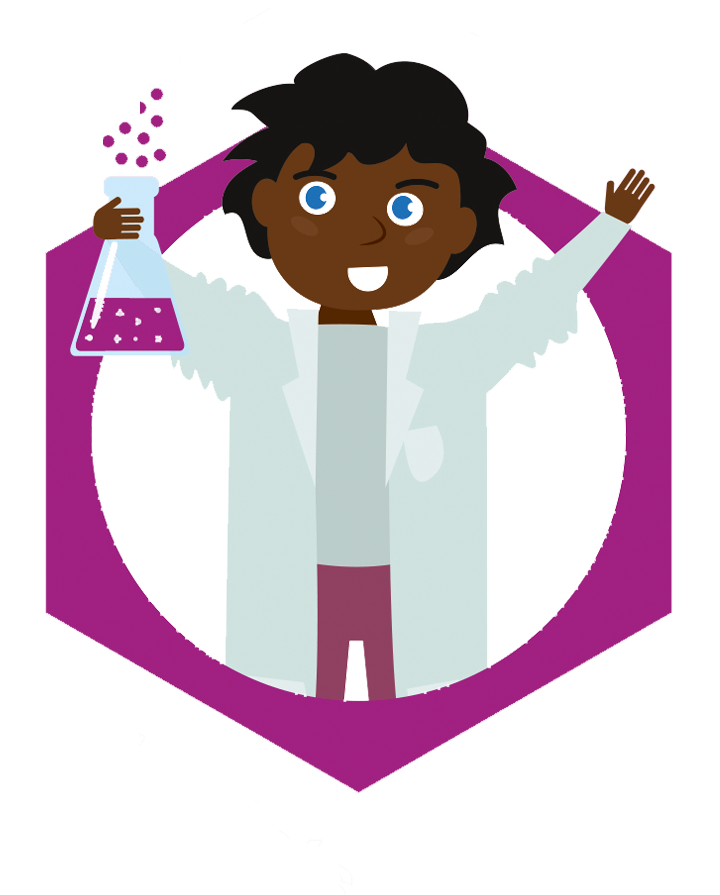
The Experts
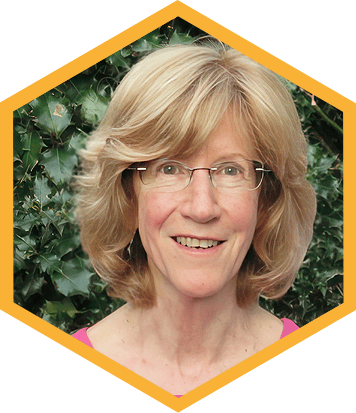
Althea Wilkinson
Dr Althea Wilkinson is an astronomer and a Christian.
Althea is passionate about finding ways to gather data to answer key questions we have about the Universe. She has worked with the world’s largest radio telescope and was part of a space mission which worked out what the sky looked like at the very beginning of the universe. She became a Christian after studying science for many years and now she also loves helping people to think about different types of big questions like “Why are we here?” and “How might astrophysics shape how we see ourselves?”
You can listen to her talking more about her science and her faith, in this 27-minute interview.
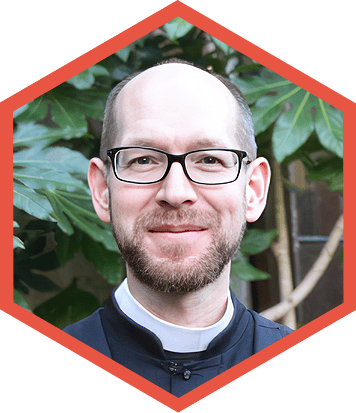
Andrew Davison
The Revd Prof Andrew Davison is a theologian, scientist and Christian.
Andrew loves science and theology (the study of God and religion) so much he got a PhD in both! His studies started in the sciences before he moved into theology, and he now works with both, together!
Andrew enjoys thinking and teaching about the sorts of questions where theology, science and philosophy meet – questions like what discovering life elsewhere in the universe would mean for Christians.
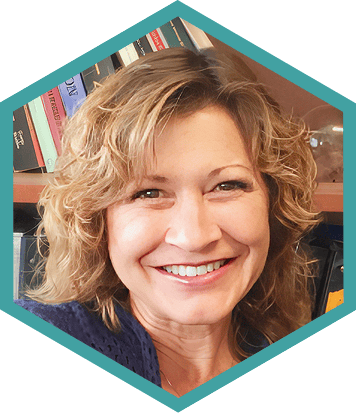
April Maskiewicz Cordero
Dr April Maskiewicz Cordero is an evolutionary biologist and a Christian.
April teaches biology to university students in America and also travels a lot speaking to audiences about how evolution and Christian faith can work together. When she was younger, she felt like she had to choose between God and studying biology at university. She now believes this choice isn’t necessary, and loves having conversations about science and faith.
You can watch this 3-minute video to explore more about her story of learning to combine her science and her Christian faith.

Bill Newsome
Professor Bill Newsome is a neurobiologist and a Christian.
Bill grew up learning about God and science. His love for science really took off at school, when he was ‘wow-ed’ by the diversity of life he could see in a single drop of water (using a microscope). At university he studied physics, and he also took religion and philosophy classes. Out of all these different ways of understanding the world, he felt particularly excited about learning about the brain, which he felt held so many secrets about how we experience life. This led to him running a neuroscience lab exploring how our brains help us see, and make decisions.
As a Christian, he loves helping people understand how scientific knowledge like this can be a gift which we can explore alongside ideas about meaning and purpose from religious faith.
You can read more about his story, here, about neuroscience and his faith, here, or listen to him speak about his life and work through a range of short videos, each of which is less than 3 minutes long.
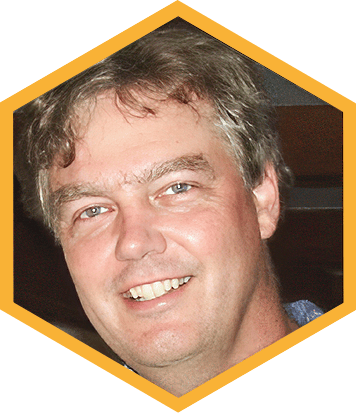
Bob Sluka
Dr Bob Sluka is a marine biologist and a Christian.
Bob has always been a curious explorer of the world he believes God made. This led him to study marine biology at university (this means studying life in the oceans), and he now works to help people look after the ocean and its creatures. Bob believes that God gave humans the responsibility to care for the world and other people, and that science can help us do that.
Explore more of his story and work, here, or in this 7-minute video.

Bob White
Professor Bob White is a geophysicist and a Christian.
Bob studies how volcanoes work and likes to visit them when they are erupting! He looks at the Earth’s crust and how volcanic rock is produced, and, because of his research work, he was even awarded a gold medal from the Royal Astronomical Society. Bob also spends his time helping people think about the responsibility he believes God has given us to look after the planet he made. Bob fully believes that science and religion have important roles to play – he helped set up The Faraday Institute for Science and Religion.
You can explore more about volcanoes on our ‘volcano explosion’ activity page, here.
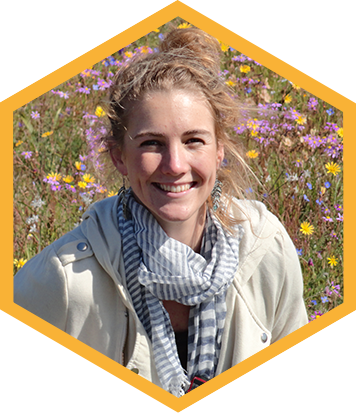
Cara Parrett
Cara Parrett is a marine biologist and a Christian.
Cara always knew she wanted to explore and protect wild animals and wild spaces, so she studied marine biology (life in the oceans) and oceanography (the physics of the ocean) in her home country, South Africa. She has been able to travel and learn about challenges in different parts of the world, including time spent as a head of marine programmes in the Maldives, working with sea turtles and coral. She is passionate about helping people take care of the world she believes God has made and loves.
You can explore more about her story and work through a range of short videos, each of which is less than 3 minutes long.
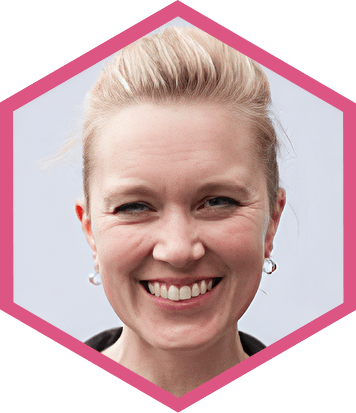
Cara Wall-Scheffler
Professor Cara Wall-Scheffler is an anthropologist and a Christian.
Cara did her PhD in a subject area called Biological Anthropology because she is interested in people, humanity’s early development and our closest cousins. She studied how Neanderthals (some of our closest cousins) lived and hunted and she now teaches biology to university students, helping them to think about where we come from and how we got here.
As well as being interested in exploring what makes us human from a biological perspective, Cara is also keen to draw these ideas together with other ways of knowing, including ideas about human identity and uniqueness from her Christian faith.
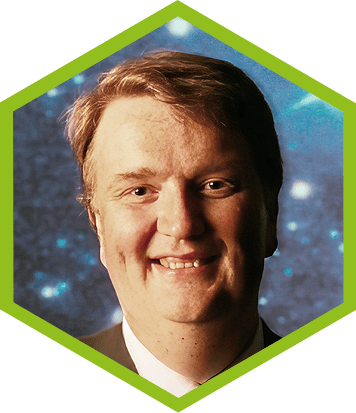
David Wilkinson
Revd Professor David Wilkinson is an astrophysicist, theologian and a Christian.
David has two PhD’s, which mirror his two passions, and now he spends his time exploring how the two go together! His first PhD was in theoretical astrophysics He studied star formation, galaxies changing over time, and mass extinctions on Earth, such as the event which wiped out most of the dinosaurs. He then studied theology (the study of religion) and has served in several different churches as well as teaching about theology.
David likes to explore questions about how Christian theology relates to modern culture, including science. He teaches, speaks and writes a lot about this and other subjects. You might also hear his voice coming out of your radio as he is a regular contributor to BBC Thought for the Day.
You can hear a little more about what he thinks about science and religion through a range of short videos, each of which is less than 4 minutes long.
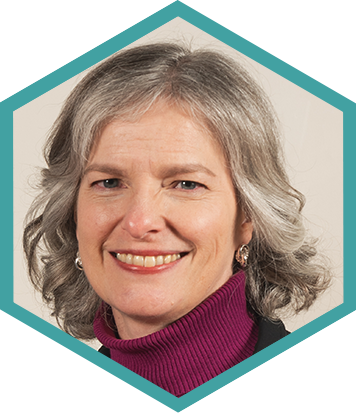
Deb Haarsma
Dr Deborah Haarsma is an astronomer and a Christian.
Deborah studied physics and music at university. She was passionate about studying the physics of the Universe she believes God made, so she entered university excited to ‘see how she could love God with her mind, as well as her heart and soul.’
Through this journey she became interested in astrophysics, and she has now spent many years studying and teaching about physics and astronomy. She has studied far away galaxies and explored the expansion of the universe.
Her faith has always been very important to her and, as someone interested in a universe which is billions of years old, she has also been on a journey of thinking about how we bring together ideas from the Bible and science. She loves to think and teach about how both science and faith can help us understand the universe and our place in it, and this is something she lived out in her 12 years spend as President of BioLogos (an organisation which helps people think about how science and Christian faith go together).
“We are free to explore the universe with joyful curiosity, relying on God’s faithfulness, discovering all the wonderful ‘how’ and ‘when’ of creation, about which scripture tells us ‘who’ and ‘why’.”
You can read more about her story, here, or watch her talk about telescopes in this 1-minute video, or hear her reflect on our place in the universe from science and the Bible in this 2-minute video.
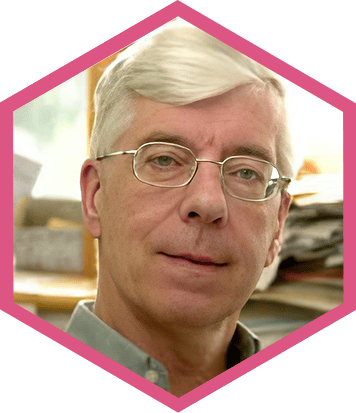
Denis Alexander
Dr Denis Alexander is a biochemist and a Christian.
Denis has spent many years researching the brain, genes (parts of our DNA) which cause diseases, and the ways in which our bodies defend themselves.
His faith is very important to him and ties into everything he does. He spent 15 years in the Middle East teaching science and helping people in the church. He helped to set up The Faraday Institute for Science and Religion, and loves to help people think about how science and faith can work together to help us explore some of our biggest questions. Often our big questions are about our origins, so he has used his knowledge to explore what science and the Bible say about human identity.
You can explore more about what Denis says about science and religion through a range of short videos, each of which is less than 3 minutes long. Teens who enjoy debates might like to watch Denis’s 10-minute address to the Oxford Union Society.
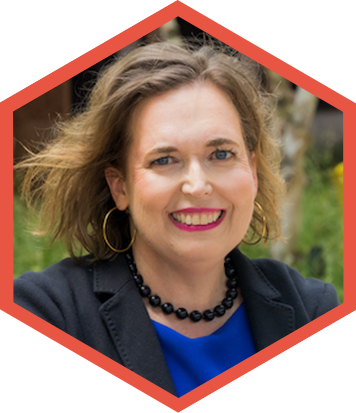
Elaine Howard Ecklund
Professor Elaine Howard Ecklund is a sociologist and a Christian.
Elaine studies and teaches about how people think and interact with each other. She is particularly interested in exploring what scientists think about religion and has travelled all over the world to ask them. She has found out that it’s much more common for scientists to believe in God than lots of people think, and she loves to help other people think about how science and religious faith interact.
You can watch this 4-minute video to explore more about her work.
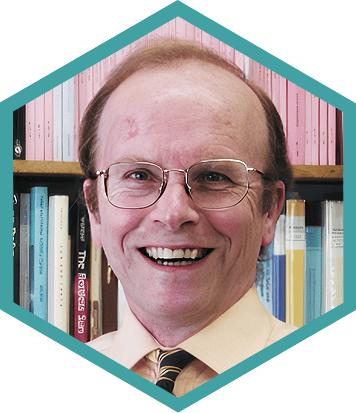
Eric Priest
Professor Eric Priest is a mathematician and a Christian.
Eric loves ‘playing with equations’ every day. In his research work, he uses maths to explore how parts of the universe work, especially the Sun. He is very interested in the links between science and faith. As a Christian and a scientist, he believes the tools of science can help us worship God as we uncover some of the beautiful mysteries of the Universe, and he enjoys helping people to think about how both science and faith can help us understand the universe and our place in it.
You can hear him speaking a bit about his science and faith, in this 3-minute video for the BBC.
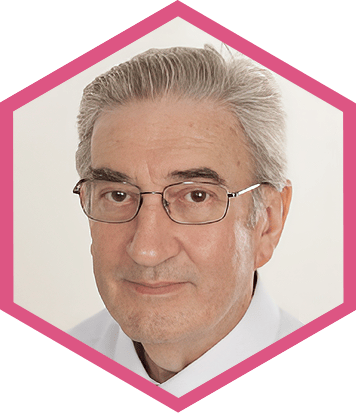
Ernest Lucas
Revd Dr Ernest Lucas is a theologian and a Christian.
Ernest worked as a research biochemist for some years before studying theology. He has spent many years teaching people about the Bible and how we can explore what it says. He enjoys helping people think about how to put together what we learn from the Bible with modern ideas, such as those we get from science.
Ernest often teaches, talks and writes about what Christianity and science each seem to say about the origins of the Universe, of life and of humans. He has spent a lot of time studying the first book of the Bible, Genesis, and thinking about how we can best understand it in the 21st century.
You can hear him talking a bit more about Genesis and evolution in this 6-minute video clip, filmed when he visited The Faraday Institute for Science and Religion in 2008.
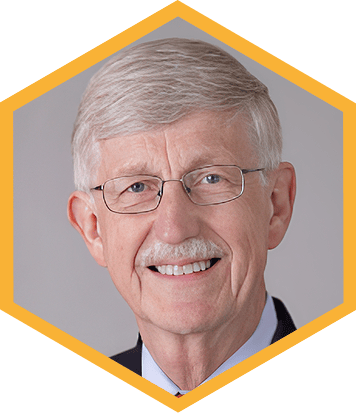
Francis Collins
Dr Francis Collins is a geneticist and a Christian.
Francis led the Human Genome Project which showed us the first full sequence of human DNA (the chemical instructions inside us which help our bodies grow and function in a special, unique way). Francis is the former Director of the National Institutes of Health. He has worked closely with several US Presidents and received the Presidential Medal of Freedom and the National Medal of Science.
During his medical training he was faced with some pretty big questions about what he believed about the world. These questions led him on a journey to becoming a Christian, and starting the BioLogos Foundation, which helps people think about how science and Christian faith go together.
In 2020, Francis received the very highly regarded Templeton Award which honours people who “harness the power of the sciences to explore the deepest questions of the universe and humankind’s place and purpose within it”. The award recognises and values the way Francis uses his scientific leadership and communication to show how religious faith can inspire really good science, and to encourage religious communities to celebrate the gift of science.
You can hear him talk about how he views science and faith in this 2-minute video, or listen to him speak about his journey at the intersection of science and faith in this 3 minute video, or this 7 minute video.
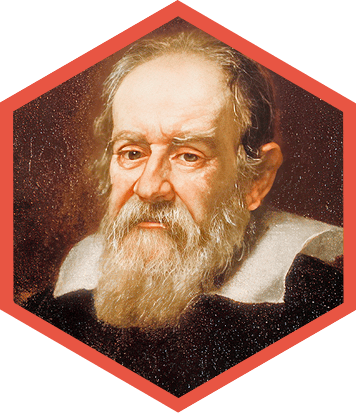
Galileo Galilei
Galileo Galilei lived from 1564 to 1642. He was an astronomer, physicist, engineer and a Christian.
Galileo had a strong influence on the beginnings of modern physics and the scientific method. He studied all kinds of things including speed, gravity, and the principle of relativity. He invented and developed scientific instruments and used his developments to the telescope to find out more about our solar system.
Galileo is well known for supporting the idea that the earth moved around the sun, rather than the other way around. There were lots of groups of scientists and others who disagreed with him, as is often the case with new ideas and discoveries. Some Christians weren’t sure what to think about these ideas at the time as it meant some people had to rethink how they believed God had set up the solar system.
Galileo eventually got himself into trouble and was arrested by the Catholic church by offending the Pope at a time when the Church was already full of disagreement and uncertainty. Since his death, the Catholic church have officially stated that Galileo shouldn’t have been treated as he was. Even when he was under arrest, Galileo kept writing about how important both his science and faith were to him.
You can listen to historian Peter Harrison talk about Galileo’s work, in this 4-minute video, and his ideas about science and faith in this 2-minute video.

Galileo Galilei
Galileo Galilei lived from 1564 to 1642. He was an astronomer, physicist, engineer and a Christian.
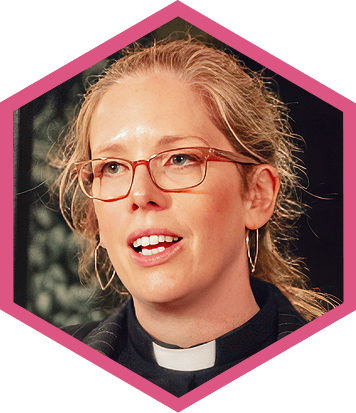
Gillian Straine
Revd Dr Gillian Straine is a physicist, theologian and a Christian priest.
Gillian studied the physics of Australian storm cloud systems and loves science, which she says is one of the wonderful ways we can study God’s world. She also studied theology (the study of God and religion) and is fascinated by how science and faith both inform the way we think about life. Gillian has had times in her life when she has been ill, and she uses this experience to help her lead a health and faith charity, and she loves helping people to think about how science, faith and health connect together.
Explore her story and work via her website, https://linktr.ee/gillianstraine.
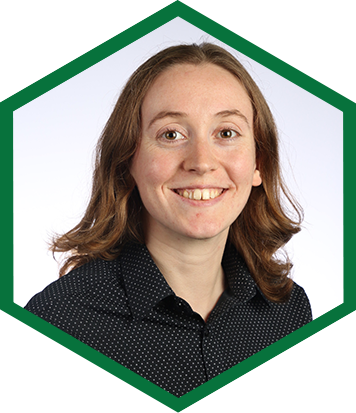
Hannah Earnshaw
Dr Hannah Earnshaw is an astronomer and a Christian.
Hannah has been a Christian for most of their life and feels this faith is deeply tied to their love for science and exploring the Universe they believe God created. There is a particular part of that Universe Hannah feels passionate about exploring… Mars! In 2013 Hannah joined the list of 100 people signed up for a one-way mission to start a human colony on Mars.
While this mission (Mars One) is officially over, Hannah is still excited by the ideas and conversations which come up when we think about space travel and humans on Mars. As well as the science, Hannah is interested in the questions that missions like this raise which go beyond science – questions about how we create ‘good’ communities, how we think about caring for the planets we come into contact with (Earth or Mars), and what ‘taking religion into space’ might look like.
As part of an answer explaining their motivations for applying to Mars One, Hannah wrote:
“… Finally, as a Christian, I have a deep love for all creation. Mars is as much God’s work as Earth is, and I know that my faith gives me a deep respect for it, as well as a firm emotional grounding for a life-long dedication.”*
You can read more about Hannah, and their ideas about Mars colonisation, in a 2015 article, here.
When they are not thinking about moving to Mars, Hannah works as an X-ray astronomer, studying some of the hottest, brightest, and most mysterious things in the Universe – black holes, neutron stars, and supernova explosions.
*Quote source: In Search of a Martian Faith (2018) An article by Hannah Earnshaw, published by The Mars Society.
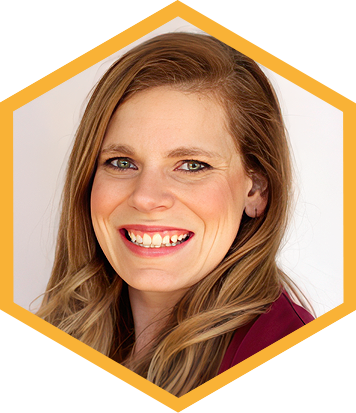
Hannah Pagel
Hannah Pagel is an astronomer, teacher and a Christian.
Hannah is passionate about learning more about the Universe – and sharing that passion with others. She studied physics and astronomy at University, and has mapped asteroid collisions, studied galaxies and even worked on the Mars Rover Curiosity.
Now a teacher, Hannah loves sharing her experiences and her passion for exploring the universe she believes God made. She continues to lead stargazing programs to introduce people to Wyoming’s extraordinary night skies – and the wonders beyond.
You can find out more about her story on her website, here.
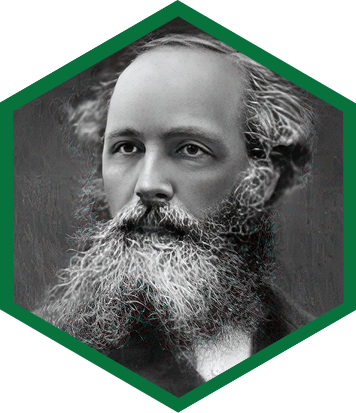
James Clerk Maxwell
James Clerk Maxwell lived from 1831 – 1879. He was a mathematical physicist and a Christian.
James worked with electromagnetic radiation and showed, for the first time, how electricity, magnetism, and light are connected. He is also thought of as a founder of the modern field of electrical engineering. In a survey of the 100 most prominent physicists, he was voted the third greatest physicist of all time, behind only Newton and Einstein. James was an Elder of the Church of Scotland. He said that his faith often inspired his passion for science, and prayed that God would ‘teach us to study the works of Thy hands’. He thought, and wrote a lot, about how faith and science could work together.
You can explore more about his work in this 3-minute video.

James Clerk Maxwell
James Clerk Maxwell lived from 1831 – 1879. He was a mathematical physicist and a Christian.
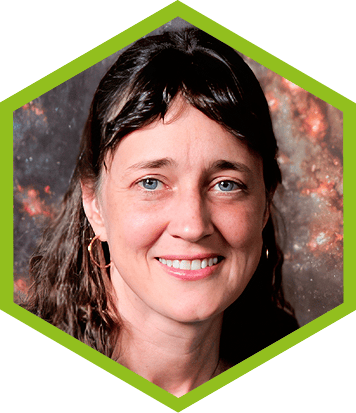
Jennifer Wiseman
Dr. Jennifer Wiseman is an astronomer, astrophysicist and a Christian.
Jennifer studies space using different kinds of telescopes to observe galaxies, stars, comets, and planets. She even discovered a comet which is named after her! As well as looking up at the night sky, she also loves animals and exploring the natural world around us.
As a Christian, Jennifer loves to help communication between religious and scientific communities. She often talks and writes about the excitement of scientific discovery and how science and faith work together positively. She even spent several years as Director of the American Association for the Advancement of Science’s Dialogue on Science, Ethics, and Religion, and
“Science is limited to characterizing the regular workings of the natural world, and does so very well. But I believe there are profound truths that science is just not equipped to address, such as questions of purpose, God, meaning, and how we should live our lives.”*
You can watch this 4-minute video to hear more about her ideas about science and faith.
*Source: A Blessed Endeavor. Interview with Today’s Christian Woman
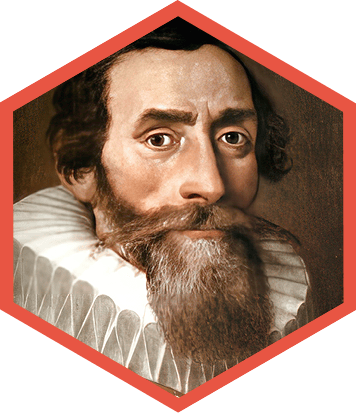
Johannes Kepler
Johannes Kepler lived from 1571 to 1630. He was an astronomer, mathematician and a Christian.
Kepler is known as a key figure in the development of modern science. He’s best known for his work in thinking about how planets move, and for some of his writings, which went on to inspire many people including Newton (and inspiring Newton’s work on gravity). Kepler developed a new version of the telescope, taught maths to people training in the church, and became the official mathematician to a number of emperors and military leaders.
Kepler’s faith was very important to him and he wrote a lot about the interactions of faith and science. His science was inspired by his belief that God had created the world in a way which could be understood through exploration and reason.
In 1595, Kepler wrote letters to another professor of mathematics. One of his letters said: “I had the intention of becoming a theologian. But now I see how God is, by my endeavours, also glorified in astronomy, for “The Heavens declare the Glory of God”.
You can explore more about his work, and ‘Kepler’s Laws’ via this 7-minute NASA video, or explore the wider story of his life and work in this 24-minute video – Johannes Kepler: God’s Mathematician.

Johannes Kepler
Johannes Kepler lived from 1571 to 1630. He was an astronomer, mathematician and a Christian.
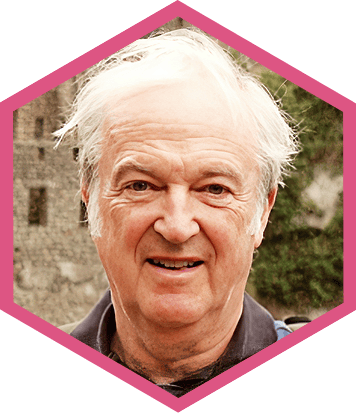
John Bryant
Professor John Bryant is a molecular biologist, bioethicist and a Christian.
John spent many years researching, and teaching others about, genes and DNA (the chemical instructions inside us which help our bodies grow and function in a special, unique way).
His work in science led him to think, and teach about, ethics (thinking about what is right and what is wrong) in science, medicine and in our relationship with the natural world.
John loves to help people think about how all the things we can learn from science and the Bible can help people explore and understand ourselves and the world around us.
You can explore more about John’s ideas about science and faith through a range of short videos, each of which is less than 3 minutes long.
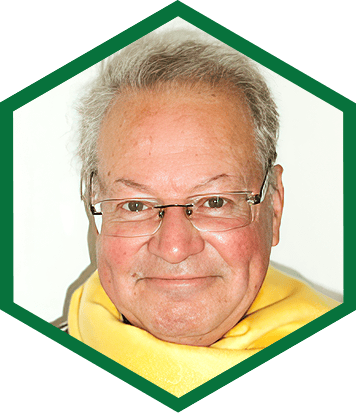
John Hedley Brooke
Professor John Hedley Brooke is an historian with an interest in religion.
While John was studying science at university, he became very interested in its history. He wanted to explore how science developed, and how it was shaped by different cultures and different religious beliefs – throughout time and across the world.
This led John to a career of research, teaching and writing about historical relationships between science and religious faith. He discovered that these relationships are not simple, and are not (as many people think) always negative. John’s research and teaching, shows how religious scientists are often motivated by their faith, and religious thinkers and scientists often drive each other forward in their search for ‘the truth’
You can read a bit more about his work here, or listen to a 2-minute video of John talking about how science and religion can interact when we think about the origin of life.
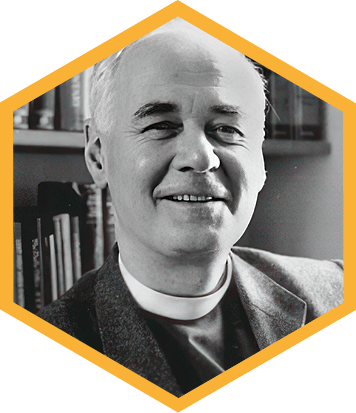
John Polkinghorne
Revd Dr John Polkinghorne lived from 1930 – 2021. He was a theoretical physicist, theologian, and a Christian.
John Polkinghorne used physics and maths to explore some of the deepest levels of our physical universe. He changed from teaching physics to study to become a priest in the Anglican church and had a huge influence in the growing field of science and religion. He taught and wrote lots about the interactions of science and religion.
John loved to help people think about how both science and faith can help us to explore life’s big questions, and thought that “the question of the existence of God is the single most important question we face about the nature of reality”.*
You can explore more about what John thought about science and faith through a range of short videos, each of which is less than 4 minutes long.
* Polkinghorne (1994) The Faith of a Physicist: Reflections of a Bottom-Up Thinker.

John Polkinghorne
Revd Dr John Polkinghorne lived from 1930 – 2021. He was a theoretical physicist, theologian, and a Christian.
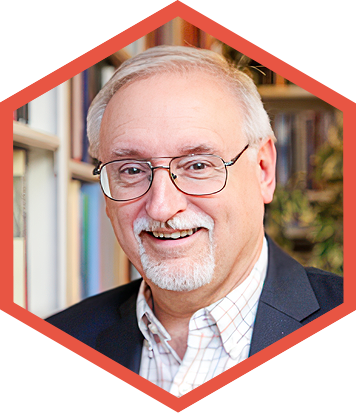
John Walton
Professor John Walton is a biblical scholar and a Christian.
John grew up in a Christian family who helped him love exploring the Bible. While he was at University, he felt that he wanted to find out more about the Old Testament – the words used, and the culture of the ancient Near East, in which it was written. So he changed his degree and signed up for Old Testament Biblical studies. Many years later, John still loves exploring the Old Testament and sharing that passion with others.
John’s research has focused on Genesis (the first book of the Old Testament), particularly the parts which talk about God as the Creator of everything. He believes that we can get a better idea of what the text means by understanding more about who wrote it, and who they wrote it for. By imagining himself in the world of ancient Israelites, he is able to uncover deeper layers of meaning in the text. This approach helps him see the kinds of questions that Genesis is exploring. John thinks that these are quite different types of questions to those that science asks today, which can help us understand the harmony between science and biblical faith.
You can explore more about John’s work by listening to him talk about science and scripture in this 1-minute video, or about how to best understand the creation narratives in context in this 1-minute video or this 7-minute video.
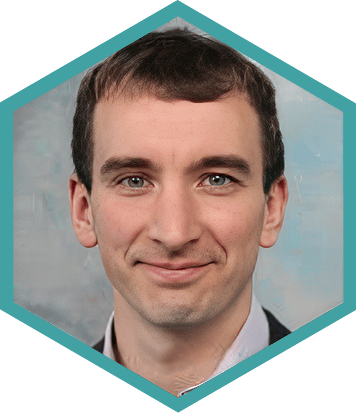
Jona Foster
Dr Jona Foster is a chemist and a Christian.
Jona is interested in exploring how we can make and use really tiny things called nanomaterials to find new ways of doing things – like detecting diseases, cleaning up water and making electricity from sunlight. He is passionate about work which can be used to help people, but he also loves just exploring the world he believes God made, and being ‘wow-ed’ by how things work! His faith is important to him and he loves to help people think about the wonderful excitement of both science and faith.
You can read more of Jona’s ideas in an article he wrote about ‘Studying Chemistry as a Christian’, here.
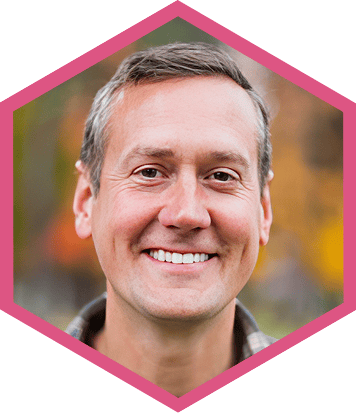
Jonathan Moo
Dr Jonathan Moo is an ecologist, theologian and a Christian.
Jonathan’s passions for the world he believes God made means he was driven to study both theology (the study of God and religion) and wildlife ecology (which means studying organisms and how they interact with the environment around them). As a Christian he likes to write and teach about the Bible and the natural world. As part of his teaching, he likes to take students into the wild landscapes around them in the USA, where they can explore the beauty of the mountains and start to think more deeply about relationships between religious faith, science and ecology. He loves to help other people study and explore the world around us and the teachings in the Bible – and sees these both as ways we can worship God.
Explore more about Jonathan’s life and passions, by watching this 2-minute video, or reading an interview, here.
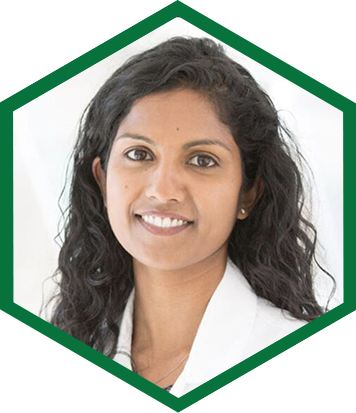
Julia Wattacheril, MD, MPH
Dr Julia Wattacheril is a Christian, doctor, and translational scientist.
Whilst she was at University, Julia felt that she wanted to explore how her science and her Christian faith could work together. Since they both stimulated her curiosity, she brought them together in her own personal life. She also began to think about how different elements of faith and spirituality can help scientists, healthcare providers and patients.
Julia’s faith motivates her to try and help others, and this is something she lives out in her medical and scientific career. She researches the most common type of liver disease globally. This disease involves abnormal fat storage which relates to how the body uses energy. Julia considers it a huge privilege to partner with patients – listening to them, answering their questions to empower them in their own health and changing the way science and technology are used to care for people.
Julia’s work means that she witnesses great suffering and perseveres through challenges; she tries to help people as they experience suffering themselves. This can be very difficult, particularly when recognition and earlier intervention could prevent it. She finds that her Christian faith, the Bible, prayer, worship through music and a community that fosters resilience and meaning are powerful tools which help her endure and maintain hope. She has found that these supports not only helps her to cope with the challenges of working in science, academic medicine and healthcare, but inspires her pursuit of truth and justice in tackling the wider challenges to human flourishing.
You can hear more from Julia in this article, as she chats about cake and coping during the 2020 covid lockdown, in this article about living out her faith in her approach to work, or in this video filmed at a Christian conference in the USA.

Julia Wattacheril, MD, MPH
Dr Julia Wattacheril is a Christian, doctor, and translational scientist.
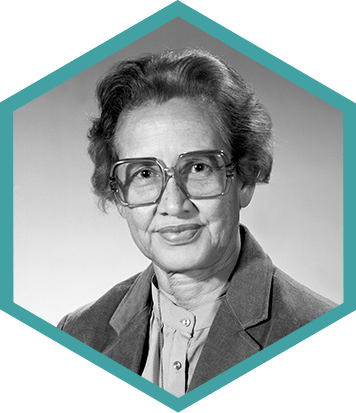
Katherine Johnson
Katherine Johnson lived from 1918 – 2020. She was a mathematician and a Christian.
In the time and place where Katharine grew up, school for African-Americans stopped when they were 13/14 years old. But her dad drove his family 120 miles, to a place where she could continue going to school. Katharine was so clever that she ended up graduating from high school aged 14, and from college (university) aged 18, with a huge love of maths.
Katharine went to work at NASA where her maths helped put astronauts into orbit around Earth, and even onto the moon! When she started her job, she and the other women who did the same job were known as ‘computers’ – this was before electronic computers were used!
Katharine loved her work and loved asking questions so much that she wanted to know more about the projects she was working on, and she started attending meetings at NASA that, previously, only men had attended. She learned so much that she became a team member working on different space projects at NASA.
Even when NASA started using ‘machine computers’ to do their calculations, they would still ask Katharine to check that the results were correct.
Katharine lived till she was 101 years old! As well as her work, she loved her family, educating others, and being a committed member of her local church and church choir. Along with her many achievements, she received a Presidential Medal of Freedom – America’s highest civilian honour.
If you want to find out more about Katharine, you can browse her website, read NASA’s information for 10-14 year olds, here, read the autobiographies she wrote for young people here and here, watch this 2-minute video, or watch the dramatized account of her life in the feature film ‘Hidden Figures’.

Katherine Johnson
Katherine Johnson lived from 1918 – 2020. She was a mathematician and a Christian.
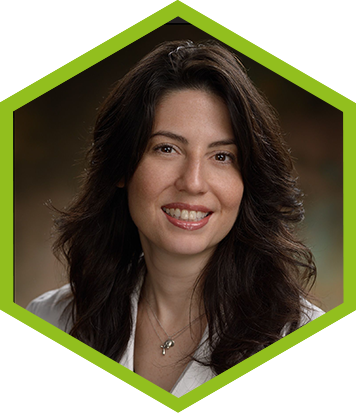
Keila Lopez
Dr Keila N. Lopez is a doctor, pediatric cardiologist, and a Christian.
Keila always knew she wanted to become a doctor. During her medical studies, she found that she wanted to use her knowledge to help large numbers of people, even those who don’t walk through the doctor’s door. This knowledge along with her public health and research training allowed her to become a public health physician who finds unique, collaborative, and creative solutions to help patients access the medical care that they need.
Keila’s journey in medicine has been long and hard, but extremely rewarding. Her Latin American parents didn’t have the opportunity to pursue a higher education and made sure she understood the value of hard work to attain a goal. She believes that God placed her on this journey for a reason, and trusted that He would help her to deliver care to others in need. Keila now works hard to make things easier and better for those who are part of minoritized groups who have been subject to unfair and racist policies that made their lives harder. She uses her unique experiences and skill sets to connect with different communities and explore differences in the healthcare available to different groups of people – particularly minoritized populations and under-served children – so that everyone can get better healthcare.
Read more about her story, and work, here.
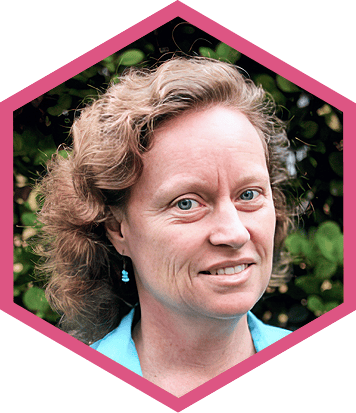
Margaret Miller
Dr Margaret Miller is a marine biologist and a Christian.
Margaret grew up loving the natural world and loving God, although, for quite a while, she thought about them separately. She now loves to think about how her desire to care for the natural world is motivated by her faith, and how this ‘creation care’ is actually an important part of what she believes God has asked us to do on Earth.
When exploring the oceans as a SCUBA diver, Margaret was drawn to the beauty of coral, and felt a strong desire to protect them from the many threats they face. She now studies the coral life cycle, and works to create tools and technologies which will help – like raising coral babies in labs and protecting them until they are ready to go into the ocean.
Because coral reefs are facing a real risk of extinction, Margaret’s work can feel hard, emotionally. She is encouraged to keep going because she believes God has asked us to take care of the world, and the poor, who will suffer most if the environment suffers. Margaret loves to help people who believe in God see the difference they can make by looking after the world they believe he has created.
You can explore the type of work Margaret does, here, and hear her talk about her science and faith through a range of short videos – most of which are under 3 minutes long.
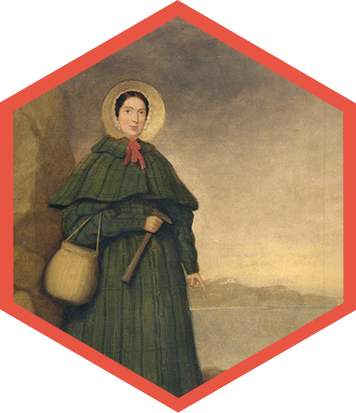
Mary Anning
Mary Anning lived from 1799 – 1847. She was a Christian, and is remembered as one of the 19th century’s greatest fossil hunters.
Mary was a Christian woman born in Dorset, in an area now called the ‘Jurassic Coast’. She was a fossil collector before people even knew what fossils were. When she was 12, her brother found a strange, fossilised skull and Mary worked hard to search for the rest of the 5.2-metre-long skeleton of an extinct marine reptile (ichthyosaur). Over time, her efforts continued to uncover fossil after fossil. She was the first to discover a complete plesiosaur (another extinct marine reptile) and she uncovered Britain’s first pterodactylus (a flying reptile). You can visit her amazing finds at the Natural History Museum in London.
Members of the Geological Society of London paid for a stained glass window to be built in Mary Anning’s local parish church, in her honour.
You can explore her story through this 5-minute video or this 1-minute video.

Mary Anning
Mary Anning lived from 1799 – 1847. She was a Christian, and is remembered as one of the 19th century’s greatest fossil hunters.
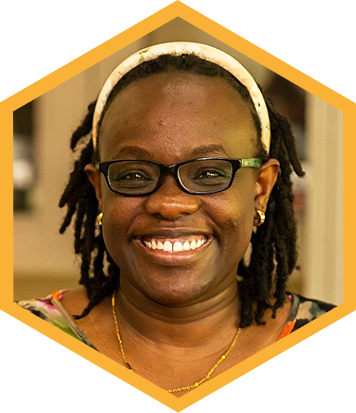
Mercy Akinyi
Dr Mercy Akinyi is a veterinarian, research scientist and a Christian.
Mercy grew up and studied in Kenya, before getting her PhD in biology in the USA. She is now working in Kenya, where she explores how diseases start and spread in baboon troops. She is passionate about helping to keep wildlife healthy, and learning lessons to help keep humans healthy, especially where humans and wildlife share a habitat.
Mercy feels that her Christian faith gives her the patience to continue her research year after year, working to better understand, and protect, the world she believes God made.
You can read more about Mercy and her work on her website, or in this article, here.
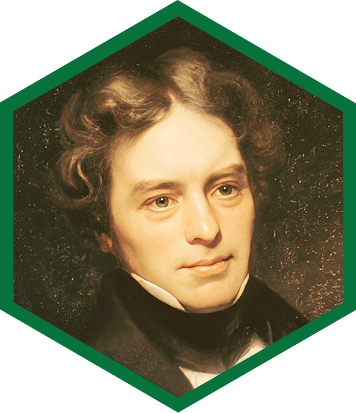
Michael Faraday
Michael Faraday lived from 1791 to 1867. He discovered many of the fundamental laws of physics and chemistry and was a Christian.
Faraday’s faith shaped the way he thought about science as well as other aspects of his life. He firmly believed that God had created everything according to ‘laws’ which could be explored and discovered through science. Some people thought that the Bible could teach us about science, but Faraday disagreed with this idea. Along with many others throughout history, he thought that science was a gift from God, to help us understand ‘the book of God’s world’ and would not, therefore, disagree with the Bible (‘the book of God’s word’) which was meant to tell us different things about God.
This way of viewing the world motivated Faraday’s scientific work. He had almost no formal education, but, while doing an apprenticeship with a bookseller, he read every book on science in the bookshop and went to as many public lectures as he could. His important work included inventing the concepts of magnetic and electric field lines, the first electrical generator, and improving understanding of the laws of electrochemistry, light and magnetism.
You can read more about his story, and work, here.

Michael Faraday
Michael Faraday lived from 1791 to 1867. He discovered many of the fundamental laws of physics and chemistry and was a Christian.
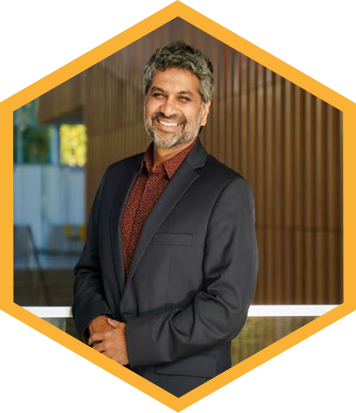
Praveen Sethupathy
Professor Praveen Sethupathy is a geneticist, Professor of Biomedical Science and a Christian.
Praveen’s journey through University led to him becoming a Christian and a scientist. By exploring how the world works at a very small scale (in cells and DNA), he is led to think about very big questions – and he is convinced that we need both science and faith to dig deeply into these questions. In fact, he thinks God invites us to discover, and enjoy, new things about the world. This is why he loves the tools of science!
You can read more about his story, here.

Praveen Sethupathy
Professor Praveen Sethupathy is a geneticist, Professor of Biomedical Science and a Christian.
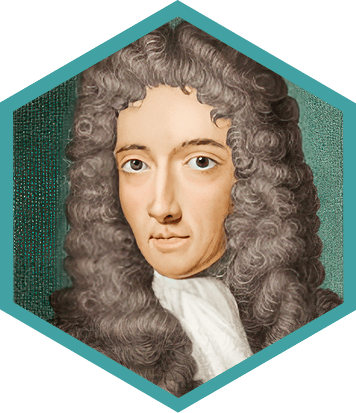
Robert Boyle
Robert Boyle lived from 1627 – 1691. He was a chemist, physicist, inventor and a Christian.
Boyle was known as a natural philosopher (the name given to people who studied the natural world using philosophy and scientific ideas before modern science was developed). Many people think of him as the first modern chemist, and therefore one of the founders of modern chemistry, and one of the pioneers of the modern experimental scientific method.
Boyle studied and wrote a lot about theology (the study of God and religion) and how science might help us think about God. He also supported those who were translating the Bible into various languages to be available all over the world.

Robert Boyle
Robert Boyle lived from 1627 – 1691. He was a chemist, physicist, inventor and a Christian.
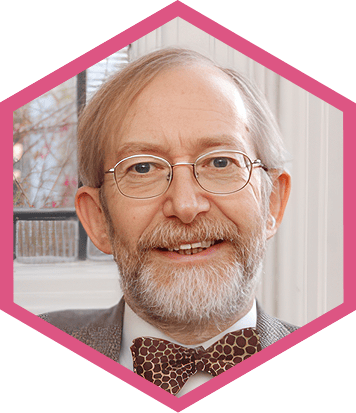
Rodney Holder
Revd Dr Rodney Holder is an astrophysicist, theologian, priest, and a Christian.
Rodney moved from studying maths, to cosmology and astrophysics, then later on to theology (the study of God and religion) while training to become a minister. He is enthusiastic about both science and faith, and has spent a large part of his life exploring, talking and writing about the ways in which they overlap.
Rodney believes that science and Christian faith can work well together in these areas of overlap, if we remember what each is for, and the different types of questions they answer. He believes the Bible tells us about God the Creator, and the gift of science can help us think about how it all works.
As an astrophysicist, Rodney has spent a lot of time thinking about the start of our universe and the special way its scientific laws seem to be set up so that galaxies, stars and life arise within it. He celebrates the wonders that science helps us to uncover about the Big Bang. Rodney believes that God is the reason anything is here at all, so understanding how physical systems (like the Big Bang) work can only help us marvel at God who is the creator of it all.
You can see more of what Rodney thinks in his answer to ‘Did God create everything or was it the Big Bang?’, in our ‘Space and the Big Bang’ topic Q&A section for kids and teens.
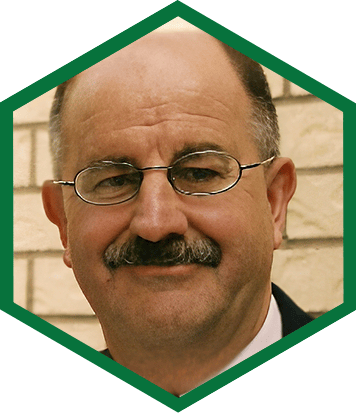
Roger Abbott
Revd Dr Roger Abbott is a theologian, scientific researcher and a Christian.
Roger studies big events like earthquakes, volcanoes, floods, hurricanes and pandemics, and how people respond to them when they impact their lives. He has talked to people recovering from catastrophic events in Haiti, New Orleans, the Philippines and here in the UK – listening to stories of fear, anger, hope and trust. His Christian faith drives him to want to help people who are suffering, and his faith and research work help him to think about how we can prevent these events from becoming disasters in the future.
You can read more about Roger’s work, here. Younger readers (aged 7 and upwards) can find his thoughts about the question ‘If God is really in control why are there so many natural disasters?’ in the book: “101 Big Questions about Science and God“.
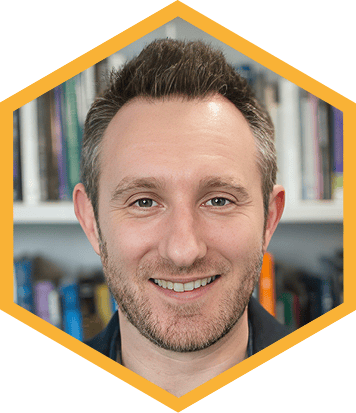
Roger Bretherton
Dr Roger Bretherton is a psychologist and a Christian.
Roger uses science to explore how people’s minds work and how the things that we think can make us better people. He asks questions like, ‘Does being thankful make us happier?’; ‘How can we make wise choices?’ and ‘Are humble leaders better leaders?’. Roger enjoys exploring how these parts of who we are relate to the ideas we have about God, faith and religion.
Meet Roger as he answers 20 questions about his work and life in 4 minutes, here!
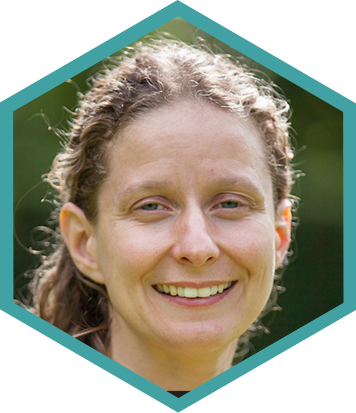
Ruth Bancewicz
Dr Ruth Bancewicz is a geneticist, science communicator and a Christian.
Ruth has always loved finding out how things worked. Growing up in Scotland with her parents who were both Christians who studied the sciences, she was encouraged to explore and ask questions about both science and religion. Ruth spent several years, studying how eyes develop in baby zebrafish, which can help us understand more about how all kinds of animals (including humans) develop. But, although she really enjoyed this, she felt called to step out of the lab and do something different.
Ruth had always believed that science and faith could go hand-in-hand, but her time in the lab taught her just how positive the relationship between science and faith could be, and she wanted to share what she had learned.
She now works at The Faraday Institute for Science and Religion – writing books, giving talks and creating positive science-faith conversations in churches. She hopes to encourage people, particularly other Christians, to explore how love for God goes with a love of science.
You can hear Ruth chatting about science and faith in this collection of videos, each under 2 minutes-long, and answering people’s questions in this 6-minute video.
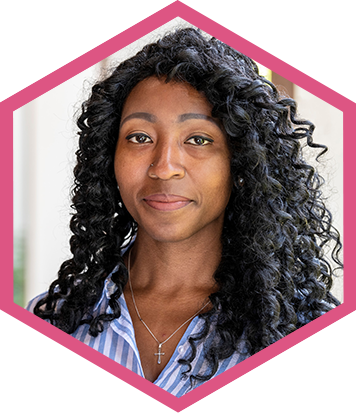
Sigourney Bonner
Dr Sigourney Bonner is a cancer biologist and a Christian.
Sigourney grew up going to church, but it was actually her time at university, studying science, which drew her closer to God and a relationship with Jesus.
Sigourney studied biomedical sciences (exploring how the human body works, to help care for ill people). Many people around her questioned how someone could be a Christian and a scientist. This was challenging for her because no one had ever spoken to her about how science and faith weren’t opposite. Once leaving university and going on to do her PhD, some of these conversations made her think more deeply about science, religious faith, and different types of evidence, and led her to realise that it is OK to question these things. By exploring her questions, she found herself becoming more sure that God is there, and that she could treasure the Bible while also doing science – she didn’t have to choose.
Sigourney originally thought she wanted to become a doctor but a brilliant lecture about nerves and the brain, and an experience looking down the microscope, led to her passion for research. Her PhD and research work since then have focused on studying children’s cancer, particularly in the brain, in the hope that she can reduce the number of children who suffer because of the disease.
When Sigourney first started her PhD, she hadn’t met a single black woman with a PhD. This realisation encouraged her to connect with other black scientists working in cancer, and to co-found an organisation called ‘Black in Cancer’ to highlight their work – providing inspiration, support and resources to help other young black people visualise a place for themselves in the sciences. Through ‘Black in Cancer’ she also reaches out to black communities, spreading awareness about cancer and helping people face important healthcare decisions.
Throughout her scientific work, Sigourney has increasingly felt that it is not only just ‘OK’ for a Christian to do science, but that uncovering the great detail involved in making life happen can actually enhance her faith in the God she believes made it all, and help her to better care for people as she believes God wants her to do.
You can find out more about Sigourney’s work and passions through the ‘Black in Cancer’ website, this BBC article, or by listening to her talk with Kunal Nayyar (actor in the series: Big Bang Theory), here.
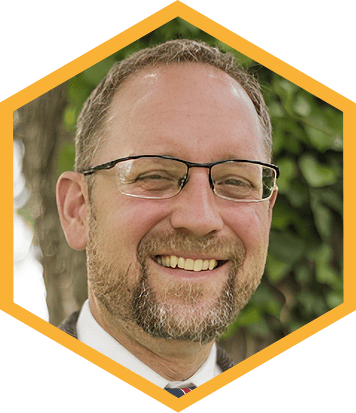
Stephen Freeland
Professor Stephen Freeland is an evolutionary biologist, astrobiologist and a Christian.
Stephen likes to research things which make him feel excited and curious, so he has explored all sorts of different subjects. He studied zoology, before doing a masters in computer science, then a PhD in genetics, and now works in an area which pulls together different subjects and ways of knowing. Astrobiology is all about understanding life in the physical universe – its origins, where we find it, and its future – so it involves many, many different subjects!
As well as enjoying bringing different types of scientists together, Stephen also feels that positive conversations can happen when we share ideas, questions and knowledge between the sciences and religious faith.
Stephen’s father was a biology teacher before becoming a Methodist Minister, so he was always encouraged to explore faith and science, and never felt them working against one another. Stephen believes that, for people of faith, science can be a gift which helps them find out more about themselves, their relationships with the rest of nature, and with God.
You can hear Stephen chatting about his science and faith in this collection of short videos (each under 4 minutes long), or read about it, here.

Stephen Freeland
Professor Stephen Freeland is an evolutionary biologist, astrobiologist and a Christian.

Susan Benecchi
Dr Susan Benecchi is a planetary astronomer and a Christian.
Susan grew up in Arizona, under incredible night skies, so she was always ‘looking up’. At school she met Clyde Tombaugh (who discovered Pluto) and became fascinated by Pluto and the outer edges of our solar system. Susan has spent lots of time exploring objects in the Kuiper belt – a donut-shaped area around the edges of our solar system. It contains rocks, ice, comets and dwarf planets and scientists believe it may be able to tell us more about how our solar system formed.
Susan loves to teach and share her passion for exploring our solar system, and the Universe beyond – which, she believes, show us God’s creative power.
Susan’s research has even led her to work with other scientists on the New Horizons mission, which sent a spacecraft to Pluto, and beyond. It has now travelled past Pluto, through the Kuiper belt, and it is still going!*
*Written in 2024. You can explore where the New Horizons spacecraft is, here.
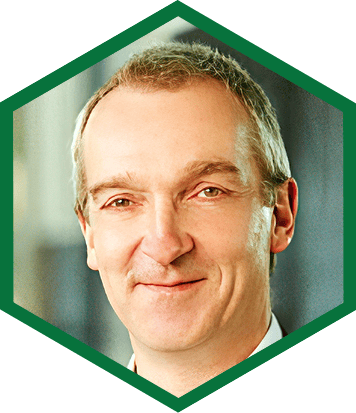
Tom McLeish
Professor Tom McLeish lived from 1962 - 2023. He was a theoretical physicist and a Christian.
Since he was a toddler, Tom loved exploring the world, looking at anything he could find under the microscope bought for him by his Grandmother (who studied plants and was also a preacher in a church). He grew up with both science and religion being important to him and his family, and he felt passionate about helping people build bridges between different ways of exploring the world and our big questions.
Tom loved to explore how our physical world works, especially how molecules behaved in different conditions when weird things seemed to happen – like in slimes, foams, and when you mix oil and water. He made discoveries which changed the way scientists think about all kinds of different substances, and never stopped encouraging people to ask big questions.
Tom enjoyed bringing engineers, biologists and physicists together to tackle questions about the physics of life. He also loved bringing the study of science together with philosophy and religious faith.
Tom believed that the Bible gives us wisdom to help us live well under God, so we can tackle real issues and use our knowledge, including science, to love people, and God’s creation, well.
You can listen to Tom talk about ‘The Wise Scientist’ in this 6-minute video, and answer peoples’ questions in this 10-minute video clip.

Tom McLeish
Professor Tom McLeish lived from 1962 - 2023. He was a theoretical physicist and a Christian.
















